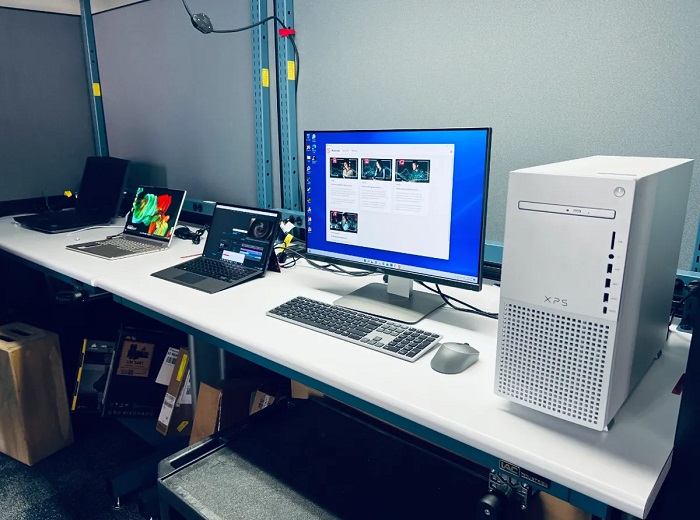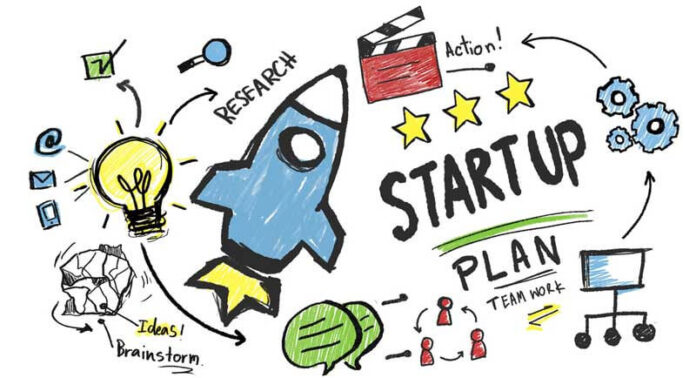La Secretaría de de la Organización Mundial del Turismo (WTO por sus siglas en inglés) anuncia la 5ta Conferencia Internacional sobre Estadísticas en Turismo "Turismo: un motor para la creación de empleo" que tendrá lugar del 30 de Marzo al 2 de Abril de 2009 en Bali, Indonesia.
El primer objetivo de la Conferencia de Bali es discutir la recomendaciones de la Conferencia de 2008. Otro tema importante es tratar el
problema de la medición y calidad del empleo en la industria del turismo. La Conferencia se focalizará por primera vez a nivel global, y
tomando al empleo como l llave del cambio para las administraciones nacionales de turismo y para las industrias.
El Ministro de Cultura y Turismo de Indonesia será el anfitrión de la cena de gala para todos los aprticipantes el 30 de Marzo de 2009 y
la cena de despedida del 2 de Abril.
Programa provisional (en inglés)
Part I: Technical Sessions
Monday 30 March
09:00 – 09:30 Ceremonia de Apertura
09:30 – 11:00 Sesión I: Developing National Systems of Tourism Statistics
Chair: UN Economic and Social Commission for Asia and the Pacific
Keynote by UN Statistics Division and UNWTO Statistics Department
“Implementing the new International Recommendations for Tourism Statistics 2008”
Panel:
– Saudi Arabia (Saudi Commission for Tourism and Antiquities) “Designing the development of a national System of Tourism Statistics: the special case of the Kingdom of Saudi Arabia”
– Mexico (Tourism Secretariat) “Statistical development and the use of rankings: reflections on the experience of Mexico”
– UNWTO, ICCA, Reed Travel Exhibitions, MPI “Measuring the Economic Importance of the Meetings Industry”
Questions and Answers
11:00 – 11:30 Coffee break
11:30 – 13:00 Session I: Developing National Systems of Tourism Statistics (cont.)
Panel:
– Indonesia (Bank of Indonesia) “Bringing consistency between the new Balance of Payments Manual (BPM6) and the International Recommendations for Tourism Statistics 2008”
– New Zealand (Ministry of Tourism) “Linking tourism statistics and sustainability”
– Austria (Statistics Austria) “Measuring seasonality in tourism statistics”
– Australia (Australian Bureau of Statistics) “Measuring tourism in the Balance of Payments”
Questions and Answers
13:00 – 14:30 Lunch
14:30 – 16:00 Session II: Employment in the Tourism Industries: Measurement Issues and Case Studies
Chair: Austria (Statistics Austria)
Keynote by ILO Bureau of Statistics “ILO/UNWTO joint project on employment in the tourism industries”
Panel:
– Canada (Canadian Tourism Commission; Statistics Canada) “TSA Human Resource module as an instrument for training adjustments regarding supply / demand of specific jobs”
– New Zealand (Ministry of Tourism) “Labour shortages in practice”
– Brazil (Brazilian Institute of Geography and Statistics; Institute of Applied Economic Research) “Employment Information System in the tourism industries: methodological references and development. The experience of Brazil”
– France (Direction of Tourism) “Paid employment in the tourism industries: a new estimate”
Questions and Answers
16:00 – 16:30 Coffee break
16:30 – 17:30 Session II: Employment in the Tourism Industries: Measurement Issues and Case Studies (cont.)
Panel:
– India (Ministry of Tourism)
– Singapore (Ministry of Community Development, Youth and Sports; Singapore Tourism Board)
– Spain (Institute for Tourism Studies) “Employment in the tourism industries and flows of visitors: a multivariant approach”
– Poland (Ministry of Tourism and Sports; Warsaw School of Economics) “TSA employment module as a tool for designing tourism labour market strategies”
Questions and Answers
Tuesday 31 March
09:00 – 10:30 Session III: Tourism Labour Market in the Asia Pacific Region
Chair: Indonesia (Ministry of Culture and Tourism)
Keynote by The University of Queensland, Australia and ILO Regional Representation for Asia “Tourism Labor Market in the Asia Pacific Region”
Panel:
– Republic of Korea (Ministry of Culture and Tourism)
– Malaysia (Ministry of Tourism)
– Sri Lanka (Ministry of Tourism)
– Philippines (Department of Tourism)
10:30 – 11:00 Coffee break
11:00 – 12:30 Session III: Tourism Labour Market in the Asia Pacific Region (cont.)
Panel:
– Indonesia (Ministry of Culture and Tourism)
– Maldives (Ministry of Tourism and Civil Aviation)
Questions and Answers
12:30 – 14:00 Lunch
14:00 – 15:30 Session IV: Measuring the Economic Contributions of Tourism: from the TSA to Alternative Modelling Techniques
Chair: South Africa (Department of Environmental Affairs and Tourism)
Keynote by The George Washington University, Department of Tourism & Hospitality
Management, USA “Clarifying the TSA brand versus alternative economic impact methodologies”
Panel:
– Indonesia (Statistics Indonesia) “Developing a subnational TSA for Bali”
– International Centre of Studies on the Tourist Economy (Italy) “Adapting international standards to subnational tourism destinations”
– China (China National Tourism Administration) “Provincial and National TSA developments in China”
Questions and Answers
15:30 – 16:00 Coffee break
16:00 – 17:00 Session IV: Measuring the Economic Contributions of Tourism: from the TSA to Alternative Modelling Techniques (cont.)
Panel:
– Canada (Canadian Tourism Commission, Statistics Canada) “Measuring supply in the TSA framework”
– Japan (Japan Tourism Agency) “TSA and complementary analytical tools for decision making both at national and subnational levels”
– Australia (Sustainable Tourism Cooperative Research Centre) “Regional TSAs and improving subnational analysis”
Questions and Answers
Wednesday 1 April (morning)
09:00 – 10:30 Session V: Using TSA Data for Business and Policy Analysis
– Chair: Philippines (Department of Tourism) Keynote by OECD “Linking the TSA project with the political agenda of National Tourism Administrations”
Panel:
– South Africa (Department of Environmental Affairs and Tourism, Statistics South Africa) “Linking Government Strategies and the TSA”
– Australia (Department of Resources, Energy and Tourism) “TSA and National Tourism Administration leadership”
– USA (Department of Commerce) “TSA as a supporting tool for marketing developments”
Questions and Answers
10:30 – 11:00 Coffee break
11:00 – 12:30 Session V: Using TSA Data for Business and Policy Analysis (cont.)
Panel:
– Hong Kong (Census and Statistics Department, Hong Kong Polytechnic University) “Hong Kong experience moving towards the TSA project”
– Morocco (Ministry of Tourism and Crafts)
– Ireland (Central Statistics Office, Failte Ireland) “Tourism Satellite Accounts in Ireland
– User and Compiler perspectives”
Questions and Answers
12:30 – 14:00 Lunch
Part II: Ministerial Sessions
Wednesday 1 April (afternoon)
14:00 – 14:30 Opening Ceremony
14:30 – 16:00 Session I: Tourism and Employment: an Overview by UNWTO
Summary conclusions of the technical sessions
Results of the UNWTO survey on tourism and employment
16:00 – 16:30 Coffee break
16:30 – 18:00 Session II: ILO Employment and Decent Work Tool-kit
Presentation and debate on the Employment and Decent Work Tool-kit developed by ILO and its application to tourism
Thursday 2 April
09:00 – 10:30 Session III: UNWTO Guidelines for Fostering Employment and Human Resources
Development in Tourism Industries
Presentation and debate on UNWTO preliminary proposal
10:30 – 11:00 Coffee break
11:00 – 12:30 Session IV: Policies to Promote Quality Employment in Tourism Industries (case studies)
– France (Ministry of Finance, Industry and Employment)
– Indonesia (Ministry of Culture and Tourism)
– Malta (Malta Tourism Authority)
– Spain (Ministry for Industry, Tourism and Trade)
12:30 – 14:00 Lunch
14:00 – 15:30 Session V: Employment in Tourism Industries as a Tool for Poverty Alleviation (case studies)
– Brazil (Ministry of Tourism)
– Costa Rica (Ministry of Tourism)
– India (Ministry of Tourism)
– Malaysia (Ministry of Tourism)
– South Africa (Ministry of Environmental Affairs and Tourism)
– United Republic of Tanzania (Ministry of Natural Resources and Tourism)
15:30 – 16:00 Closing Ceremony






